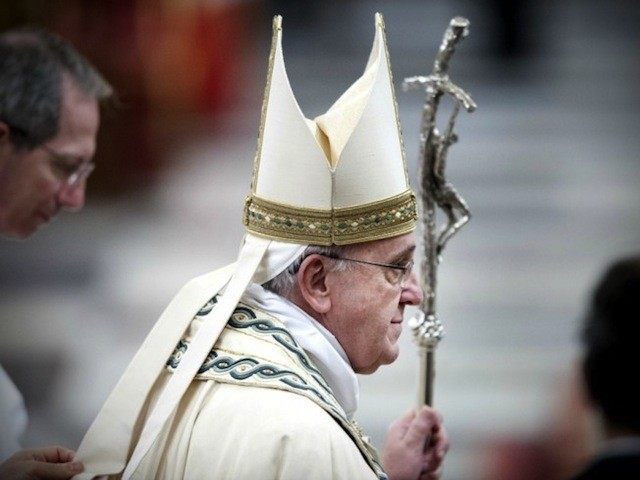Rampant speculation on whether Pope Francis would employ the “G-word” in describing the Turkish massacre of 1.5 million Armenians a century ago has been definitively answered as the Pope called the slaughter “the first genocide of the twentieth century” Sunday morning.
The Armenians have been preparing a major commemorative event this month, which has entailed a vigorous campaign for greater public acknowledgment that the slaughter constituted genocide. Turkey on the other hand has long refuted the accusation of genocide, insisting that the death toll has been inflated, and that those killed were victims of civil war and unrest rather than systematic extermination.
In 2013, when Pope Francis referred to the Armenian massacre as genocide, the Turkish Ministry of Foreign Affairs responded with a statement denouncing the Pope’s words as “absolutely unacceptable.”
This past Thursday Francis avoided the word when he met a delegation from the Armenian-Catholic church, but he did say that the massacre involved dark forces in the human heart “capable of programming the systematic annihilation” of their brothers.
In Sunday’s address to faithful of the Armenian rite, however, the Pope was unequivocal in his condemnation of the massacre, reiterating its status as “genocide” and tying it to the global persecution of Christians taking place in the present day. He also said that remembering and honoring the victims of the slaughter was a duty.
“In the past century our human family has lived through three massive and unprecedented tragedies, Francis said. “The first, which is widely considered ‘the first genocide of the twentieth century,’ struck your own Armenian people, the first Christian nation, as well as Catholic and Orthodox Syrians, Assyrians, Chaldeans and Greeks.”
The Pope said that the other two instances of genocide in the twentieth century “were perpetrated by Nazism and Stalinism.”
“Dear Armenian Christians,” the Pope continued, “today, with hearts filled with pain but at the same time with great hope in the risen Lord, we recall the centenary of that tragic event, that immense and senseless slaughter whose cruelty your forebears had to endure. It is necessary, and indeed a duty, to honor their memory, for whenever memory fades, it means that evil allows wounds to fester.”
“Concealing or denying evil is like allowing a wound to keep bleeding without bandaging it!” he said.
The Pope also reiterated what he has said on other occasions: that the world is now experiencing “a third world war which is being fought piecemeal,” one that involves “savage crimes, brutal massacres and senseless destruction.”
“Sadly,” he said, “today too we hear the muffled and forgotten cry of so many of our defenseless brothers and sisters who, on account of their faith in Christ or their ethnic origin, are publicly and ruthlessly put to death – decapitated, crucified, burned alive – or forced to leave their homeland.”
Today too “we are experiencing a sort of genocide created by general and collective indifference, by the complicit silence of Cain, who cries out: ‘What does it matter to me? Am I my brother’s keeper?’”
Follow Thomas D. Williams on Twitter @tdwilliamsrome

COMMENTS
Please let us know if you're having issues with commenting.